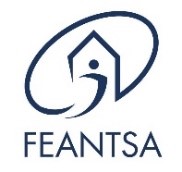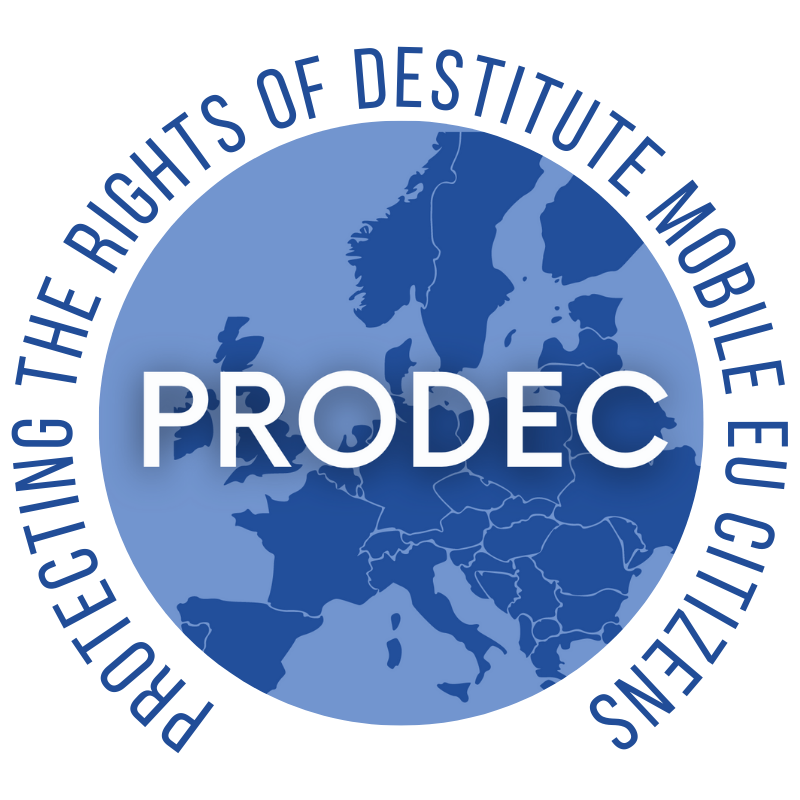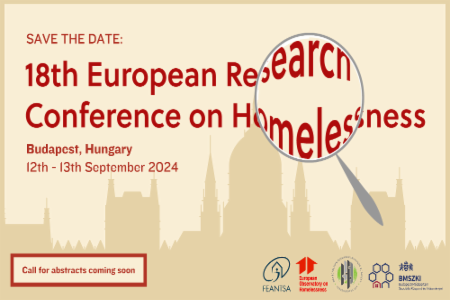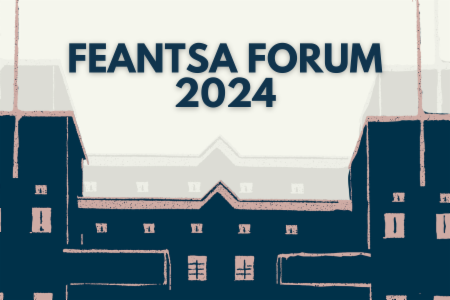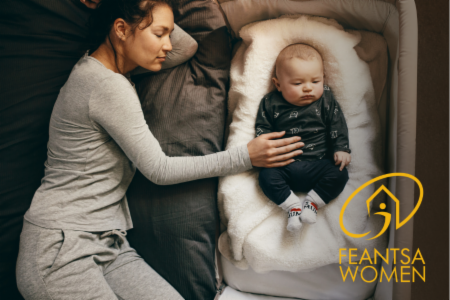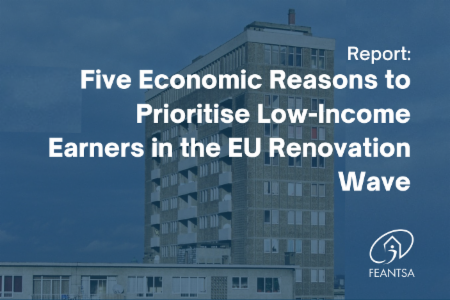PRODEC
Protecting the Rights of Destitute Mobile EU Citizens
Third phase 2022 - 2023
FEANTSA works to raise awareness of the situation of destitute mobile EU citizens, and the factors that contribute to pushing them to poverty and ultimately homelessness. For the last five years, our work in connection to free movement was developed under the PRODEC project – Protecting the Rights of Destitute mobile EU Citizens. In its first and second phases, PRODEC activities allowed FEANTSA and its members and partners to investigate on the factors conducive to homelessness among mobile EU citizens, while building capacity of the local service providers working with mobile EU citizens in need. Extensive advocacy was also conducted to inform policy makers on the needs of destitute mobile EU citizens.
Under the third phase of PRODEC, FEANTSA will continue its work concerning free movement, with a focus on contributing to European public policies to encourage considering situations of destitution among mobile EU citizens. We will also raise awareness at national level and will continue to support our members in developing skills for supporting mobile EU citizens in their services. This will be possible with financial support from EPIM (the European Programme for Integration and Migration).
Data suggest that mobile EU citizens continue to be disproportionately affected by destitution, which may ultimately push them into homelessness. When looking at statistics produced by Eurostat on the risk of poverty or social exclusion, in-work poverty, housing cost overburden or overcrowding rate, mobile EU citizens are in a worse position than the nationals of the countries they live in. The data collection carried out by FEANTSA together with our member organisations during the previous two phases of the project confirm once more that mobile EU citizens are often overrepresented in the homeless population of many cities or services (e.g., in Brussels, London, Copenhagen, Barcelona, Münster, Berlin). At the same time, structural support from authorities continues to be poor and access to social protection is limited for destitute mobile EU citizens, including precarious workers.
In the past two years, Europe has been confronted with a global health crisis determined by the Covid19. On the background of the pandemic, several situations detrimental to the rights of EU citizens have emerged, which need to be further monitored and addressed (e.g., difficulties to obtain welfare benefits, increased risk of homelessness because of loss of jobs). More recently, the war started by Russia in Ukraine caused millions to look for refuge in the EU. The homelessness sector is also highly involved in managing the high numbers of refugees arriving from Ukraine, where the sector was already overwhelmed and struggled to cope with the level of need. Both crises determined political changes that can give scope to further advocate for the right to accommodation for all, including mobile EU citizens experiencing homelessness in a host MS.
Given this context, continuous civil society engagement is key to ensuring better support for mobile EU citizens in need, on two accounts: providing psycho-social support and counselling on their rights, and further to advocate with public authorities for developing support policies. Local CSOs, including homeless services (many of which are FEANTSA members) already provide support for mobile EU citizens, building extensive knowledge of their needs and living situations. At the same time, it is still necessary to improve knowledge on free movement rights and legislation among professionals working with mobile EU citizens, so they are better equipped to support individuals in need, while adapting to crisis situations.
To achieve our goal, we are guided by three main objectives in the third phase of PRODEC:
- The mobilisation of public opinion and policymakers, so they are keen to act on the main gaps in free movement legislation that are potential factors of destitution.
- Holding national authorities accountable for the incorrect or excessively restrictive transposition of EU laws on free movement.
- Capacity-building for professionals working with mobile EU citizens, making use of the good practices identified during the previous two phases of the project.
PRODEC III activities are structured in five main areas of intervention, some of which we describe below:
1. Feeding into relevant policy developments
- Feedback to the upcoming guidelines on the Directive 2004/38/EC (‘Free movement Directive’).
- Input to the upcoming EU citizenship report drafted by the European Commission.
- Work to include Roma mobile EU citizens in initiatives concerning free movement and the post-2020 Roma national frameworks.
2. Advocacy work to raise awareness among society and EU institutions
- Draft a comparative overview of the data collection reports from previous project phases.
- Organise one study visit to a ‘sending country’ and another one to a ‘host country’ for FEANTSA members working with destitute mobile EU citizens, to exchange knowledge and experiences.
- Publishing two advocacy reports, including one on the impact of the Covid19 pandemic on destitute mobile EU citizens.
3. Building capacity for civil society and local authorities
- Organise a series of webinars on specific topics concerning mobile EU citizens (ex: access to EU funding, gender and trauma informed services, Roma culture and history).
- Organise a training on free movement rights and strategic litigation for FEANTSA members.
4. Strategic litigation
- Follow-up on existing complaints submitted to the European Commission.
- Submission of two new complaints against Member States incorrectly transposing Directive 2004/38/EC.
5. Continuing the CORE partnership – Civic Observatory on the Rights of EU citizens
- Implementation of training and advocacy activities jointly with the CORE partners: European Citizen Action Service (ECAS), Alliance4Europe and DemSoc.
- Social media campaign following up on the Communication from the European Commission with new guidelines for the ‘Free movement Directive’.
For information and to get in touch you can reach us at: migration@feantsa.org (Sergio Pérez Barranco, PRODEC Project Officer) and simona.barbu@feantsa.org (Simona Barbu, Migration and Health Policy Officer). For more information, please visit our website or follow us on Twitter.


